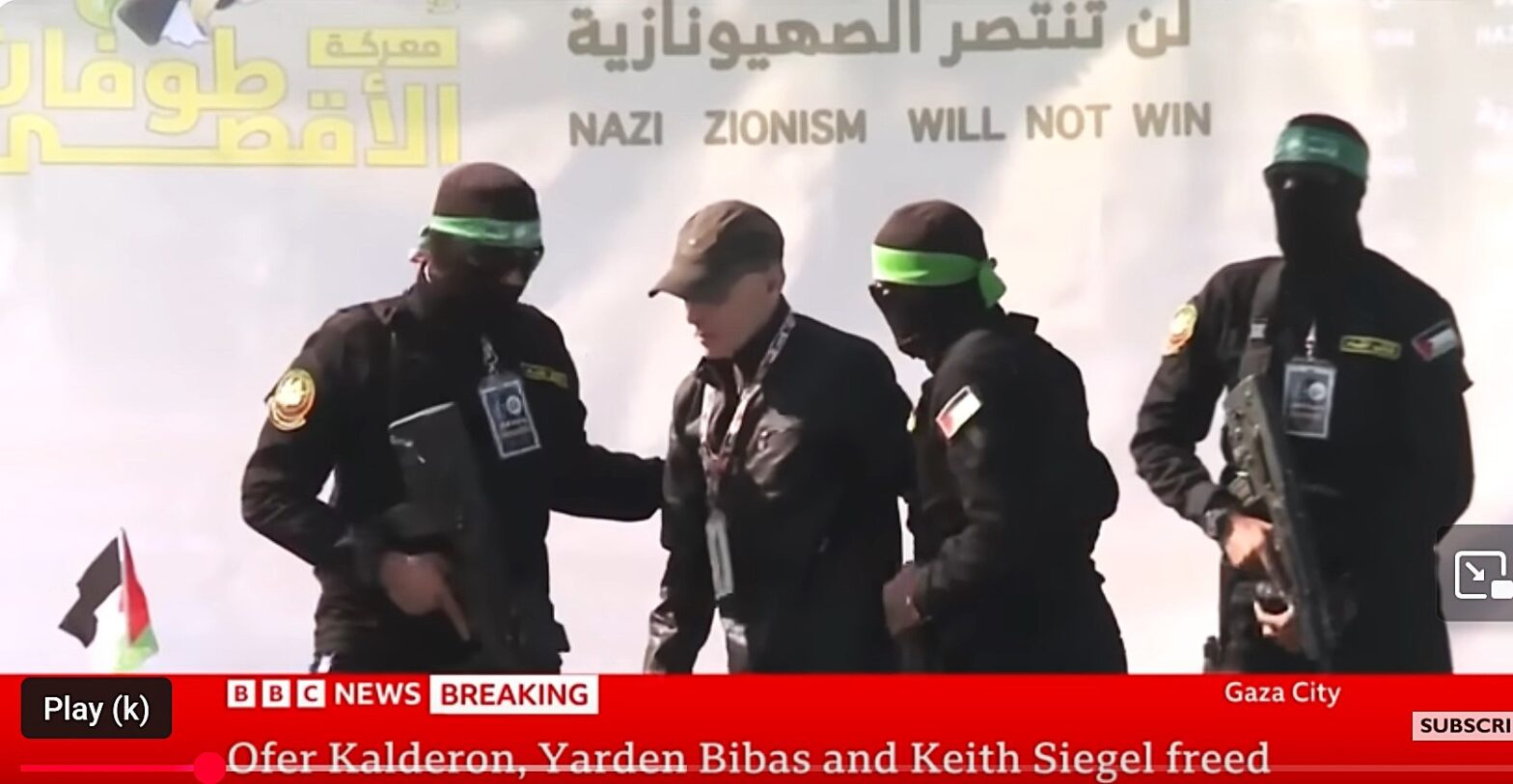Over a year ago I wrote "Kidnapping Rules", following 'Israel's' blatant refusal to follow them, and the supine acceptance by ALL Western leaders and their media of this exceptionalist Zionist position. Referring to the Israelis taken hostage by the Palestinian Resistance in Gaza, of whom a group of women and older civilian men had recently been 'released', I suggested that: Everyone knows the rules of kidnapping. Both in real life and in film, those rules are unquestioned and brutal - the kidnapper's demands must be met or there will be consequences worse than paying the ransom, which will often be the death of the captive, preceded by torture. This period, between the taking of the captive and the resolution with their freedom or death, is the period of extortion, blackmail and negotiation. The unwritten but well understood rules of this game are similar to other games, where failure to accede to the demands of the kidnapper result in new and more onerous demands, and commonly with a time limit. These demands are usually referred to as 'the ransom'..." In such cases of criminal hostage taking the ransom is almost always money, with the sum and conditions decided by the kidnappers according to the perceived value of their goods and the amount of money they believe may be extorted from the victims' relatives or state. While there is now some discussion and semantic arguments over whether the 'goods' are 'hostages' or 'prisoners' - or even prisoners of war, the basic principle of 'kidnapper's rules' remains the same: a price must be paid for the return of the stolen goods. The only difference in the case of the Israeli hostages/prisoners being held by Resistance groups in Gaza is that the price that must be paid for their release is in human currency, in the form of Palestinians taken prisoner by Israel and kept for years in inhuman conditions and with no chance of release. The State of Israel has also shown that it will only release such prisoners under extreme duress - duress that no Western governments are prepared to put it under. The case of Gilad Shalit, a single soldier with the Occupation Army kidnapped by Palestinian militants in June 2006 is the model. It took five long years before the Zionists finally acceded to the Resistance demands, which were accordingly high - over 1000 Palestinian prisoners, 280 of whom were on life sentences, and notably including Yahya Sinwar, the recently executed Hamas leader in Gaza. The Wikipedia entry linked above makes interesting reading, referring to the general refusal of both Israeli leaders and public to accept the 'legitimacy' of the final deal, and their various attempts to avoid paying the whole 'ransom'. (The IOF's subsequent re-arrest of many of the released prisoners in the Occupied West Bank also demonstrated Israelis' essential lack of honour.) It could be said that both sides learnt from the Gilad Shalit experience. Hamas learnt that 'Israel' would finally be forced to give in to its demands, while Israel learnt that it must do everything - including killing its own citizens - to avoid being put under pressure by hostage taking. Both these positions have played out in the current conflict, with Hamas' primary motivation for its October 7th invasion being to take hostages so as to secure the release of Palestinian prisoners, while Israel famously killed many of its own citizens in an unsuccessful attempt to stop hostages being taken. There is an alternative possibility on this however, as the successful campaign to destroy Gaza could only have been fought for so long with the pretext of 'rescuing the hostages' and 'bringing them home'. While 'Israel' surely wanted to avoid soldiers and 'high-value' targets being taken, the provocative placing of the rave festival near Gaza's borders seemed to invite their capture, with the advantage of including many foreign nationals. Only now do we see the soldiers being traded, and high-value Palestinians released in exchange for them - though that is all; the latest development is that Hamas is now stalling on further releases until 'Israel' keeps to its side of the deal - supplying thousands of tents and portable homes, fuel and supplies, generators and pumps - and most vitally, earth-moving equipment to assist returning residents in looking for their dead relatives in the rubble. It was however revealed just as the ceasefire deal started that the reason it had not happened months earlier - back in July last year when the same plan was agreed upon - was because members of the Netanyahu government refused point blank to allow 'convicted prisoners' to be released from Israeli jails, even though some spent 30 years there already. To understand more of the background on Hamas, I recommend Tom Stevenson's excellent and balanced review of Hamas' history, thinking and presence in Gaza published in the LRB this month, which defies the usual obligatory condemnation of its alleged atrocities, and emphasises the disproportionate response and genocidal atrocities committed by 'Israel' in Gaza. This is timely given the extraordinary and ridiculous statements and moves by the US President, and encouragement to 'Israel' to cast aside what it supposedly agreed to, and resume bombing and killing in Gaza if Hamas doesn't give in to his demands. It is as if they have forgotten which side they are on; under kidnapping rules it is for Hamas to dictate the terms, and threats and blackmail won't ever replace paying the ransom. Despite the extreme deprivations that the returned families face in Northern Gaza, where aid convoys have barely reached yet, the Palestinians' morale and spirit is unbroken, as this great little interview with kids from Anas Al Sharif shows.
DM 12th February 2025
